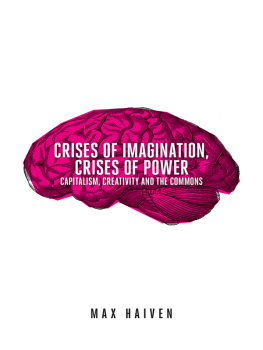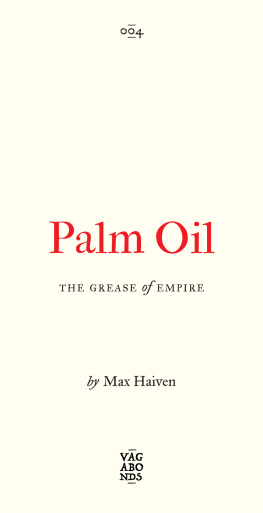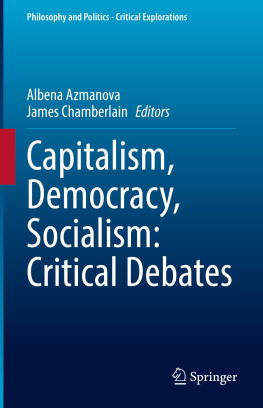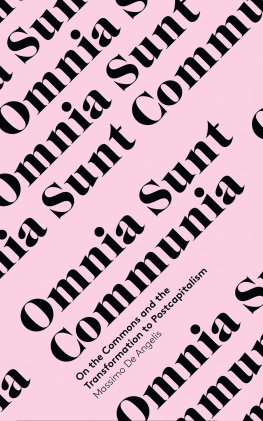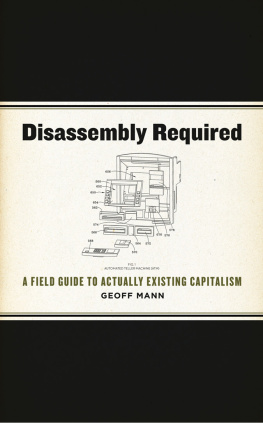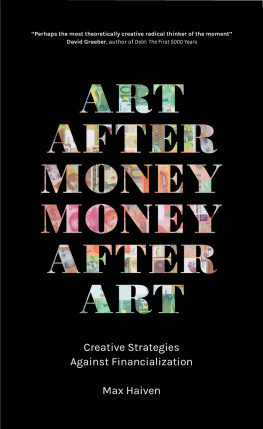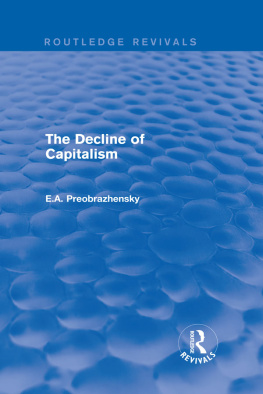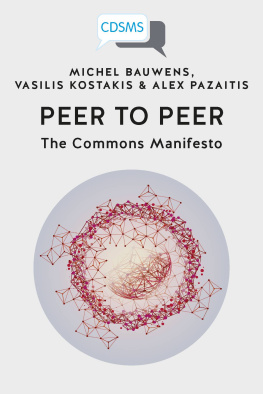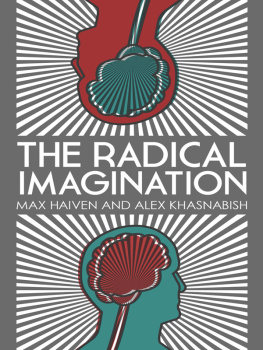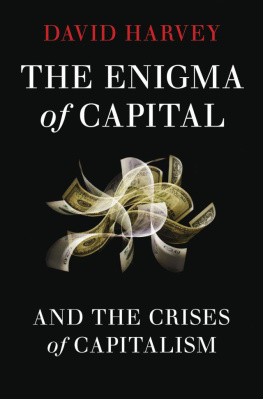
About the author
MAX HAIVEN is an assistant professor in the division of Art History and Critical Studies at the Nova Scotia College of Art and Design in Halifax, Canada. He is the author of many academic articles on themes including the financialization of society and culture, contemporary social movements, the radical imagination, and cultural and social theory. He is the co-author of The Radical Imagination: Social Movement Research in the Age of Austerity (Zed Books 2014) and author of Cultures of Financialization: Fictitious Capital in Popular Culture and Everyday Life (Palgrave Macmillan 2014). More information can be found at maxhaiven.com.
Crises of imagination, crises of power
Capitalism, creativity and the commons
MAX HAIVEN

Zed Books | LONDON & NEW YORK
Crises of Imagination, Crises of Power was first published in 2014 by Zed Books Ltd, 7 Cynthia Street, London N1 9JF, UK and Room 400, 175 Fifth Avenue, New York, NY 10010, USA
This ebook edition was first published in 2014.
www.zedbooks.co.uk
Copyright Max Haiven 2014
The right of Max Haiven to be identified as the author of this work has been asserted by him in accordance with the Copyright, Designs and Patents Act, 1988
Designed and typeset in Monotype Bembo by illuminati, Grosmont
Index by John Barker
Cover design: www.roguefour.co.uk
All rights reserved. No part of this publication may be reproduced, stored in a retrieval system or transmitted in any form or by any means, electronic, mechanical, photocopying or otherwise, without the prior permission of Zed Books Ltd.
A catalogue record for this book is available from the British Library
Library of Congress Cataloging in Publication Data available
ISBN 978 1 78032 955 0
Acknowledgements
Words makes the uncommon common.
FRIEDRICH NIETZSCHE
Every day I remind myself that my inner and outer life are based on the labours of other people, living and dead, and that I must exert myself in order to give in the same measure as I have received and am still receiving.
ALBERT EINSTEIN
Thanks to Phanuel Antwi, Dave Bush, Mary Ellen Campbell, George Caffentzis, the Canadian Union of Public Employees Local 3906, Richard Day and Affinities, Alex Diceanu, Chris Dixon, The Edu-Factory Collective, the editors at Znet, Dissident Voice and Truth-Out, Silvia Federici, Judy Haiven, Larry Haiven, Omri Haiven, Brian Holmes, Kabuki Housing Cooperative, Alex Khasnabish, Gary Kinsman, Pierre Loiselle, Randy Martin, Riley McCready, Chuck and Harriet McCready, the Social Sciences and Humanities Research Council of Canada, C.S. Soong and Against the Grain, Imre Szeman, Robert Tally, Jack Wong, and all at Zed Books and Fernwood Publishing (especially Ken Barlow, Kika Sroka-Miller and Jonathan Maunder). Above all, Alyson McCready.
INTRODUCTION
Crises of the imagination
To the men and women
who own men and women
those of us meant to be lovers
we will not pardon you
for wasting our bodies and time
LEONARD COHEN,
The Energy of Slaves
You, dear reader, are on the front lines of a war. It is a war between money and the earth, between capital and people, between the blunt stupidity of greed and the resilient creativity of humanity. Perhaps they have destroyed or will destroy the ecosystem in which you live in the name of profit. Perhaps your body or your soul is wrecked or in the process of breaking down because you must work a meaningless, oppressive job to make enough money to survive or perhaps you like your job but feel the ever-present shadow of the axe in this age of budget cuts and rationalization. Perhaps you are devalued by the colour of your skin, the country of your origin, or your perceived gender or sexuality and feel that devaluation in the form of prejudice, exploitation, intimidation or xenophobia. Usually you will feel it economically too. Perhaps you hold some position of power and authority and have been made to do something against your values for the sake of keeping your job, a wound that you carry with you, or that, worse, you try and deny. Perhaps you have seen your friends and family dwell in poverty, fail to achieve their potential, fall prey to the system. Perhaps you are among or will be among those statistics that indicate that the largest single cause of the breakdown of marriages and relationships is financial hardship. Perhaps you can no longer recognize yourself after years of seeking success or enduring failure. Perhaps you feel guilty for the ways your economic privilege is fed by the exploitation of others, the way your (relatively) cheap iPod or clothing depends on the incarceration of young people in factories on the other side of the earth. Perhaps your children have moved away for work, or your parents suffer for lack of care you or they cannot afford to provide. Perhaps you have had to make compromises between your morals and your happiness, comfort and survival that you can barely live with. Perhaps you are simply poor, indebted, hopeless and adrift, sensing that you will be undervalued and exploited for the rest of your life. In any case, unless you are extremely fortunate, or extremely avaricious, what and whom you love and value has been or will be undermined by capitalism at some point and in some way.
Capitalism is in crisis. The crisis is inherent and inexhaustible. It is a crisis not merely of a lack of regulation or of the greed of individuals, but of a fundamentally amoral system. It is a global crisis of value.
According to free-market ideologues, capitalism is the ultimate system for assigning value to the worlds wealth.price things as diverse as the cost of an hour of a shoemakers time, a loaf of bread, the value of a river, or the price of a song on iTunes. These utopian dreamers, whose thinking has become associated with the term neoliberalism, believe that by mobilizing peoples competition and inherently acquisitive human nature, capitalism is, ultimately, value-neutral markets are simply egalitarian arenas of exchange. The truth, of course, is quite different. The value of the market itself has become the overarching and unquestionable arbiter of almost every aspect of human existence today. All social, moral, ethical, and personal values are subordinate to the value of money. The result is a system where, in almost every case, the perceived needs of the market trump any other considerations.
Consider, for instance, the dramatic failure of one of the largest assemblies of world leaders in human history to take meaningful action in the face of global warming and the catastrophic climate change it will unleash. In spite of an unprecedented near-consensus of global scientists, and in spite of the evidence that the continuation of present levels of carbon emissions would lead to the destruction of the lives and livelihoods of millions (perhaps billions) of (mostly poor, brown) people, it was ultimately decided that the perceived needs of capitalist markets were more important, and that no action that in any way impeded or jeopardized economic growth would be taken. Such a perversion of any reasonable notion of what is valuable is, sadly, neither new nor shocking. It occurs everywhere, all the time. Individuals and communities around the world are left to languish in poverty, ill health and strife because markets demand lower taxes, access to resources and cheap labour. Whole nations and populations are ruined by speculative investment because markets desire the unfettered ability to gamble on nation currencies, food prices and government bonds. In the age of austerity, hospitals, pensions, mental health services, schools and universities and even civil infrastructure must be abandoned in the name of plugging the bleeding holes in the crisis-ridden market. And everywhere the value of the earth and the value of individuals and their labour is measured exclusively in its capacity to render profit for increasingly uncontrollable and unanswerable corporations and the god-like market they serve.
Next page
